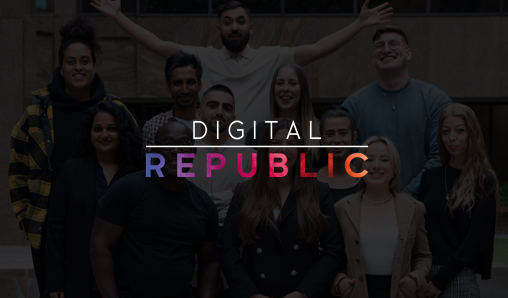
Travelling on Data: How Data Analytics Is Transforming The Travel Industry

Most organizations today are making heavy investments in data analytics, strategy, and data-driven solutions. Why? Because data enables them to identify opportunities to optimize operations, processes, and functions. However, contrary to popular belief, it is not sufficient to simply aggregate vast volumes of data. The true worth of data lies in effectively analyzing it and in the insights that can be extracted from data to drive better business outcomes. And this is exactly where data analytics steps into the picture.
In my opinion, data analytics is slightly broad with the spectrum ranging from basic data pulls to advanced analytics at the very edge of cloud computing. And that’s why, depending on where an organization is, in terms of its maturity and priorities, it becomes important to focus on the right things in this spectrum to derive impact. Online travel aggregators such as Cleartrip have been at the forefront of adoption of data and analytics and have applied it to a number of business areas. In this piece, I will focus on a few different examples illustrating how data analytics is helping and transforming the travel industry.
The Basics: Reporting & BI (Business Intelligence)
“Without data, you are just another person with an opinion.” – W. Edwards Deming
Reporting and dashboards are the essential building blocks of any organization which help organizations track their KPIs and identify critical opportunities for growth. This essentially helps organizations translate their business strategy into manageable, operational actions and follow through progress on initiatives.
In the travel sector, seasonality is a very important factor that can have a significant impact on day to day business goals. This is what makes reporting even more essential. New-end BI tools even allow for responding to business questions like “what are the top travel destinations for Apr, May and Jun?” based on NLP (natural language based) setups. This really can help to democratize data across the organization so that everyone can make decisions powered by data.
Alerting and Monitoring Systems
Data analytics is also important when it comes to alerting and monitoring. The travel industry generates data in huge volumes. Manually keeping a track of such vast amounts of information is an impossible task. Analytics comes in handy with being the core of real-time alerting and monitoring systems to identify anomalies and rare observations.
Optimization and Efficiency Building
In business, each investment – whether of time, effort or money should reap concomitant dividends. Analytics is helping organizations prioritize their investments and redirecting them towards ‘what matter the most’.
Take marketing spends as an example – leading players in the travel domain typically have huge annual marketing budgets, especially for online promotions. Analytics help optimize these by looking at past performance across different marketing channels and prioritizing spends as per the business goal to drive enhanced value. In the offline world as well, newer technologies like audio fingerprinting are enabling data collection at the consumer level and so analytics is being used to optimize offline spends like TV and radio too.
Another major use case of analytics via bringing in efficiency into processes is ‘optimized customer targeting’. By understanding the behaviour and preferences of different customers and segmenting them into value groups, marketers can derive a lot more efficiency from campaigns and marketing initiatives. Once you identify the intent of a user, you can deliver the right message at the right time via the right channel to acquire or require them.

Personalization
With so much digital content to distract users and the ever reducing attention spans, personalization has become a high focus area for all digital players. Travel companies as well are utilizing analytics to introduce unparalleled personalization in their end-user offerings.
As an example, recommendation engines are helping identify the right content that’s relevant to a user given a certain context. And customers are being delivered the most relevant information at any point of time to help them make the best travel decisions, based on their individual stated and unstated needs.
Since consumer data is constantly updated on a real-time basis, such personalization is helping travel players facilitate better engagement with their customers and drive preferential business outcomes.
Smart Data for Smart Products
Data analytics is also helping in the creation of smarter travel products. The sheer volume of end-user information and content can help in improving presentation and process flows.
Take, for instance, the train PNR confirmation probability prediction feature – one of the first features in the travel category to leverage data analytics to improve service delivery and information availability for the customer. The product is still quite relevant and was introduced by IRCTC in its website upgrade last year.
Similarly, airline fare guidance recommendations are another smart product powered by analytics. Flight fares vary from day to day due to various factors, making the purchase decision difficult for the end-user. These engines parse through the huge amount of information available to identify whether a user can benefit by waiting to book at a later date. Different online players have taken a different approach to this. Cleartrip, for instance, had launched a product called Pricelock, which allowed a user to lock a fare today for a small fee and return before the travel date to pay the original locked fare without risking any fare increase.
Travel companies are also starting to use chatbots to cater to the ever-growing market and attract a digitally savvy customer. Chatbots are AI-powered programs with analytical and predictive capabilities. So a good chat-bot can help users reduce long hours of indecisive search which is usually the case in travel planning. There are examples of travel companies are using chatbots very strategically to help out with the right travel offering.
Analytics is also being used to drive several smaller (but important) enhancements in the products and content being served to the customers. For e.g. analytic techniques like NLP are being used in a big way to structure the huge qualitative information that is available in the form of travel user reviews. Likewise, image analytics is also coming in handy to create improved content in the accommodation space.
Enhancing Business Strategy & Customer Experience
There are several examples of how analytics informs business strategy and planning. Take an annual business planning cycle for a travel organization as an example. Given the amount of variation in business due to seasonality, simple extrapolations almost never work for planning. And so techniques such as forecasting become extremely important to define the business goals.
Another example is the experimentation in pricing that almost all kind of travel players (airlines, OTAs and hotels) are trying out. With advanced analytics techniques allowing for adjustments in pricing strategies on a real-time basis, everyone is experimenting with dynamic pricing to improve their business objectives.
Social media analytics and NLP techniques are also helping travel companies stay abreast with the latest travel trends and engage with users via better content and travel products.
All the examples I have tried to illustrate above are indicative of how integral data analytics has already become within the travel sector. But the road does not end here: experts agree that the technology will assume a more important role in the travel value chain in the near future. If end-user service delivery is the destination that travel companies aspire for, then analytics is defining the journey that they must undertake to survive and thrive in an increasingly digital-first world.
Originally posted by Priyanka Chaurasiya.
If you found this article interesting, you might want to read this blog too.
Follow us on our LinkedIn and Twitter to stay up to date with the latest news in the digital data-driven ecosystem
Digital analytics, optimisation, data science or programmatic expert, and looking for a job?
Check out our latest live vacancies here
Digital agency looking to expand your team with top-tier talent?
Send us your jobs here
Get in contact with us!


